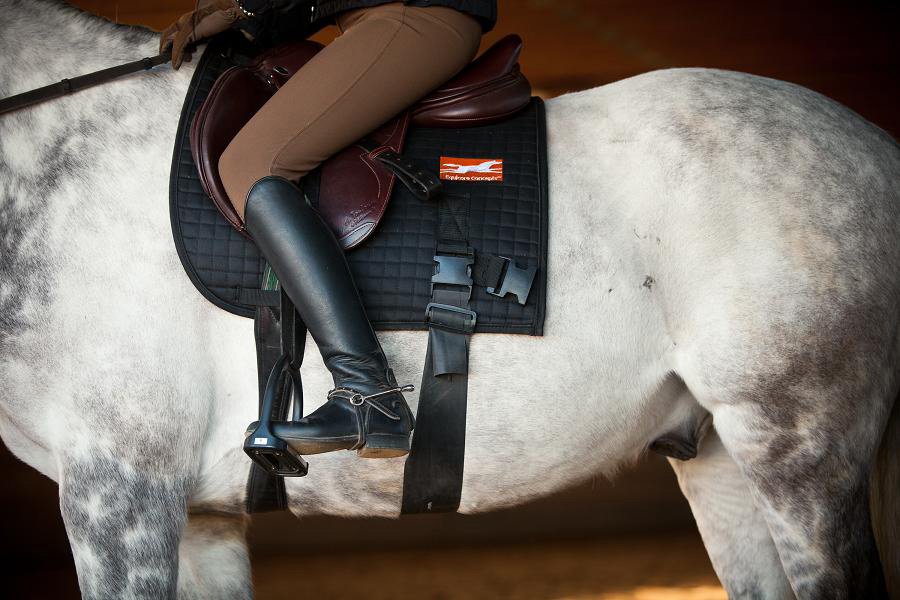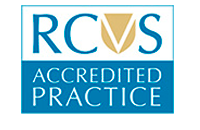24 hour contact: 01707 666297
New study highlights impact of elastic resistance band training for horses
Many horses are affected by lameness and back problems, and these can be prevented or treated with training or rehabilitation programmes that aim to improve core muscle strength to increase dynamic stability. Until now however, there has been little supporting evidence on the efficacy of these programmes.
New research by the Royal Veterinary College has found that the use of a specific system of elastic resistance bands is extremely effective in increasing dynamic stability of the horse in trot. These elastic bands have therefore been proven to be a method horse owners can use to prevent injuries as well as overcome them. They are easily accessible to horse owners.
The research analysed the effects of a four-week exercise programme, which was devised with the use of the elastic band system, on the movement of seven privately owned riding horses' backs. The exercise programme involved the use of a modified saddle pad to which two elastic bands (the hindquarter band and the abdominal band) were attached using buckle clips with the bands fitted at 30% tension.

A statistical model was used that investigated the effect of band usage, the effect of time as well as whether the horse moved in-hand or on the left or right rein on the lunge. Back movement parameters were calculated from a total of 3,215 strides (25 to 89 strides per condition) at the two times points (week one and week four), with and without the use of the exercise bands.
The riders reported a greater ‘stability of movement’ when the elastic bands were used. This was reinforced by the research, which found that when using the bands there was less roll (rotation around the forward-backwards axis) and pitch (rotation around the left-right axis) at the level of the lower back, as well as less left-right movement in the mid thoracic and lumbar regions.
The research was conducted by Dr Thilo Pfau, Senior Lecturer in Bio-Engineering at the RVC, Professor Renate Weller, Professor in Comparative Imaging and Biomechanics at the RVC, Victoria Simons, an RVC veterinary student, Nicole Rombach of Equinology Inc., California and N. Stubbs from the Department of Equine Sports Medicine, Tierklinik Lűsche, Germany and Napoli Slovak Equestrian Club, Samorin, Slovakia. The researchers are now encouraging future studies to directly measure muscle activity to improve understanding of the underlying mechanisms involved in providing increased dynamic stability.
Dr Thilo Pfau, Senior Lecturer in Bio-Engineering at the RVC, said: “Until now there has been little supporting evidence on the effect of training and rehabilitation programmes in preventing and/or treating lameness and back problems in horses. The system we tested is easy to use during the normal exercise routine of a horse, meaning it can be applied to horses of any discipline. It also takes very little time to apply to the horse, considering all it entails is attaching the bands to a modified saddle pad, and it can be used during ridden exercise.”
Press Office Contact
Uche Graves / Zoe Chadwick
T: 0800 368 9520
E: uche.graves@plmr.co.uk / zoe.chadwick@plmr.co.uk
Notes to Editors
The Royal Veterinary College (RVC) is the UK's largest and longest established independent veterinary school and is a constituent College of the University of London. The RVC offers undergraduate, postgraduate and CPD programmes in veterinary medicine, veterinary nursing and biological sciences, being ranked in the top 10 universities nationally for biosciences degrees. It is currently the only veterinary school in the world to hold full accreditation from AVMA, EAEVE, RCVS and AVBC.
A research-led institution, in the most recent Research Excellence Framework (REF2014) the RVC maintained its position as the top HEFCE funded veterinary focused research institution.
The RVC also provides animal owners and the veterinary profession with access to expert veterinary care and advice through its teaching hospitals; the Beaumont Sainsbury Animal Hospital in central London, the Queen Mother Hospital for Animals (Europe's largest small animal referral centre), the Equine Referral Hospital, and the Farm Animal Clinical Centre located at the Hertfordshire campus.
RVC Press Release 26 May 2017
See other Press Releases.

